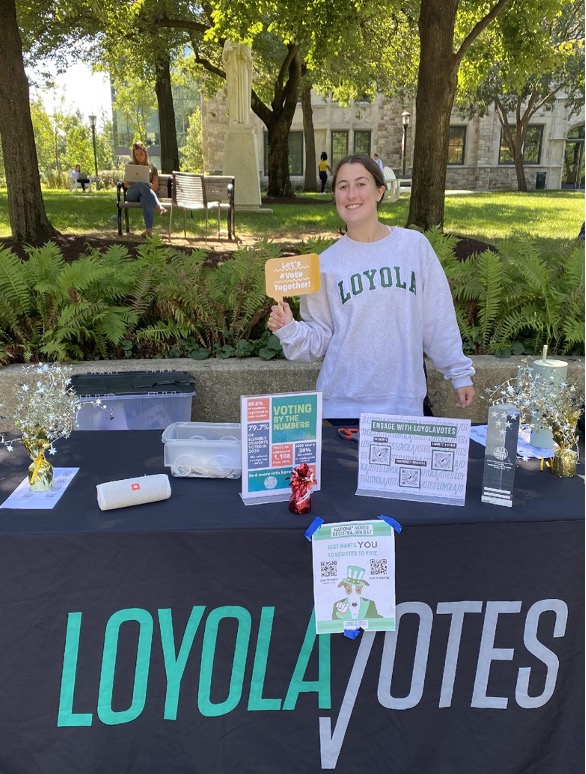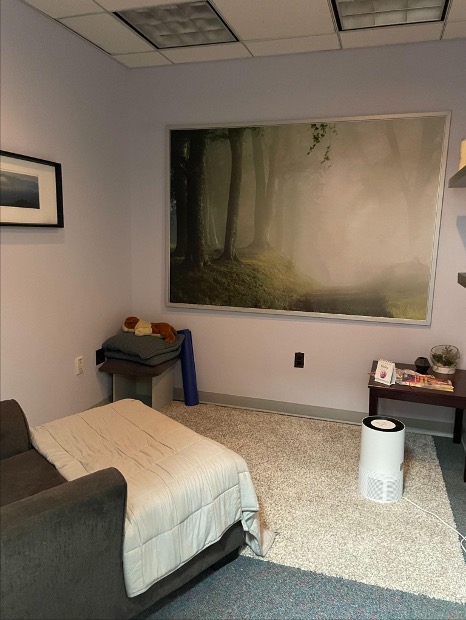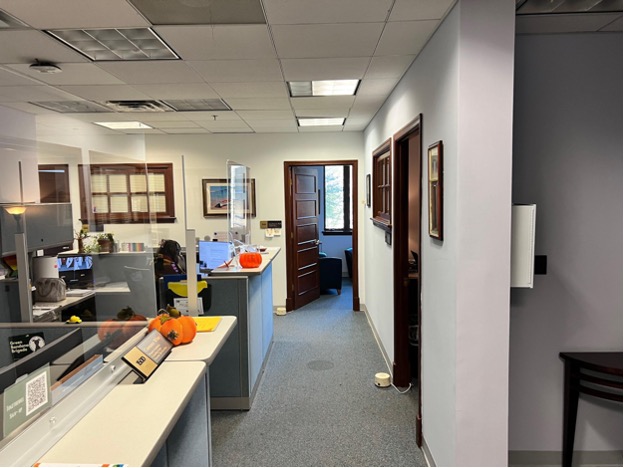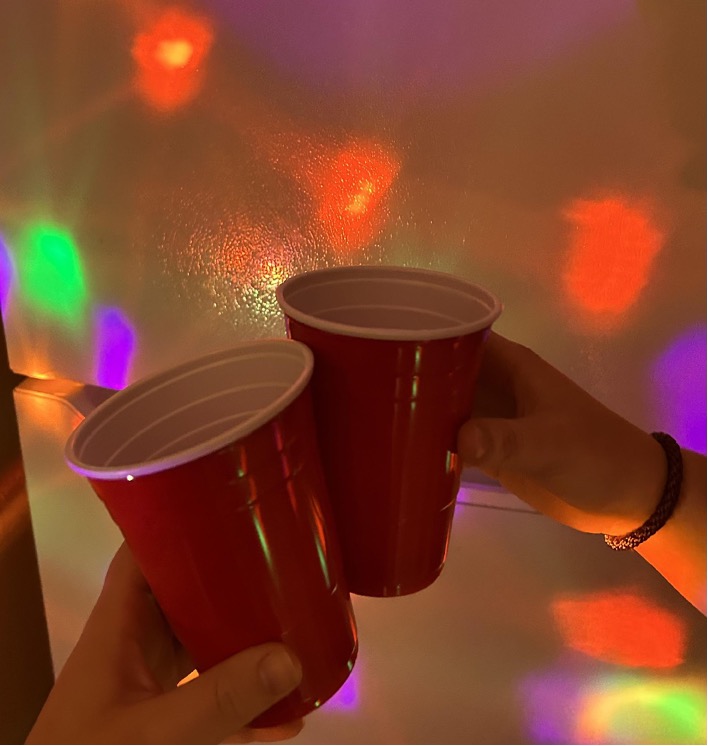The following does not represent the views of Loyola University Maryland, the Greyhound, or Loyola University’s Department of Communication.
9/11, war in Iraq, the first Black president of the United States, the largest financial collapse since the Great Depression, Obama Care, school shootings on the rise, the legalization of gay marriage in all states, the first business-president, a pandemic, a racial equity revolution, an insurrection on the U.S. Capitol, the only U.S. president to be impeached twice – wow. We have lived through a lot of major events in our short lives.
These events are what shaped our perspective on how we see the world, whether it is conscious or subconscious. We are living in a political landscape that is seemingly unpredictable, and this instability is the culture that has surrounded us as we grow up. As the 2024 election season gains momentum, the spotlight is shining on our new voters as we wait to see what they do. We are experiencing rapid change that will heavily dictate our future; therefore, it is critical that the generation that will live to see this future vote. Why?
When you check your box this November, the issues you can expect to be considering include student loan forgiveness, environmental issues, social justice issues, immigration issues, and economic issues. Many of these, like student loan forgiveness and our environment, will have a direct impact on your life. Yet so many people are hesitant to show up to the polls. Will you?
Connor Robb ‘24, is not satisfied with the candidates.
“The people who we are voting for now are not really qualified for the position,” Robb said. “Someone who I want to vote for isn’t on the ballot this year.”
Megan Powell ‘26 shared a similar sentiment.
Powell said, “I probably should know more about [the election], but I am feeling uninspired. It’s the same thing over and over again.”
A lot of voters share this complaint. In the Nevada Republican primary, voters gave the most votes to “None of these candidates,” a ballot option that is required by state law. This election will showcase the two oldest candidates in U.S. history. They are both straight, white men which is not sitting well with many people in Gen Z since we are the most ethnically and racially diverse generation yet. Because of this, the makeup of the generation most accurately matches the racial makeup of the United States. Additionally, due to the rising acceptance of queer people, Generation- Z has the most amount of people that openly identify as queer.
Diversity is important to young voters, and that not being reflected in the candidates is being pointed to as a major reason for the lack of participation, however, of eligible voters, young people have always been the smallest group to do so. In this critical of an election, Gen Z needs to show up.
“If students decide to skip out on elections or let location or other excuses stop them from going to the polls, the younger generation would just be giving up the chance to dictate the country’s future,” President of Loyola Votes Matt Pawlow ‘26 said, “Don’t you want to have a say in what happens next?”
Genna Quinn ‘26, expressed her nervousness for the upcoming election, but despite her feelings she knows the importance of young people voting.
Quinn said, “Although this upcoming election may leave young people uninspired to vote, I think now more than ever it is important for us to let our voices be heard.”
Quinn said, “There are 31 million individuals in America aged between 18 and 24; only 158 million individuals voted in the 2020 election…clearly we have more of a say than we think we do!”
It’s true. The young voting population wields a lot of power, and it is important to harness that as we watch historic policy decisions happening.
In June of 2022, the Supreme Court overruled Roe v. Wade, a ruling from the 1970s that protected women and their right to get an abortion. Following this, many people were warning that it was laying groundwork for a future that could ruin women’s lives. In the wake of this, many people thought that fear was dramatic.
Then, the Alabama Supreme Court made a groundbreaking decision on Feb. 21 ruling fertilized eggs from IVF treatment are babies, and any parents that discarded their eggs are eligible for prosecution. When you vote in this election—no matter which side of this issue you fall on—know it is on the ballot.
Major legislation is happening before our eyes and the only way we can have a say in it is if we show up to vote, which Loyola has a strong sense of. Loyola is proud to have been recognized numerous times for the high rates of student voter participation, such as being ranked in the top 25 list for student engagement among campuses nationwide for 2021 by TurboVote, and having the highest voter registration and turnout in Maryland, among many others.
“As Loyola students we often hear the term ‘Ignatian citizenship.’ It essentially means that you see yourself as part of a larger community and actively seek to advocate for others and for justice,” Matt Pawlow said, “That is why it’s important to participate in elections.”
When you vote, you are not ordering a private car to pick you up and drop you off exactly where you want to go; instead, you are stuck taking public transportation. There is probably not a stop exactly where you want to go, but you will still take the train, get off at the closest station, and consider it a win. There will likely never be a candidate that checks every single one of your boxes, but there is one who will get you closer to your goals than another.
Do not let this election or the people on the ballot, discourage you from voting, because life goes on. Whether you vote or not, policy will be enacted. You should want to have a say in what happens next, because it is unfolding right before our eyes.
You can register to vote, and learn more, at USA.gov.














































































































